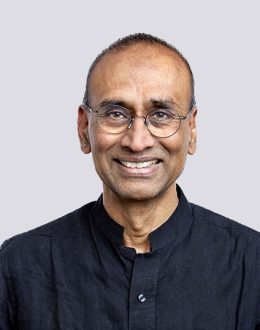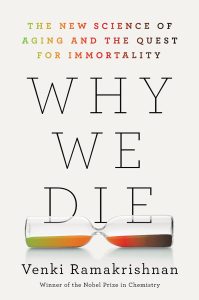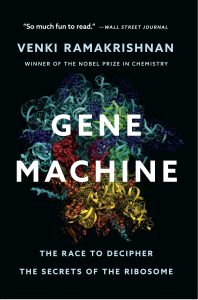
Venki Ramakrishnan keynote speaker
- Biotech Investment
- Current Trends in Longevity Research
- Molecular Biology, Especially Protein Synthesis
- Molecular Structures
Venki Ramakrishnan is an American and British molecular biologist who shared the 2009 Nobel Prize in Chemistry. He currently works at the world-renowned MRC Laboratory of Molecular Biology in Cambridge, England and from 2015-2020, he served as President of the Royal Society, one of the world’s oldest scientific organizations. He is best known for his work on protein synthesis, the process by which genetic information is used by the ribosome to make the thousands of proteins that make life possible. This process is fundamental to all life and its dysfunction leads to many diseases as well as to aging. He is a member of the US National Academy of Sciences and was knighted by the British government in 2012. In 2022, he received one of Britain’s highest civilian honors, the Order of Merit, which is restricted to 24 people across all fields, and some of whose other members currently include David Attenborough, David Hockney, Norman Foster, and Simon Rattle.
In addition to his academic work, Ramakrishnan is a science partner of the venture capital fund Ahren Innovation Capital, and on the boards of the AI-based drug development company, Isomorphic Labs, and the British Library. He recently co-founded RNAvate, an RNA therapeutics company based on stable, next-generation RNA molecules. In the public arena, he played a leadership role when he was president of the Royal Society, including dealing with the consequences of Brexit and helping convene the Society’s response to provide advice during the covid pandemic and did a significant amount of public engagement including articles in the press and appearances on national media.
Ramakrishnan is the author of two popular books: Gene Machine (2018), a very frank scientific memoir about the race for the structure of the ribosome that led to the Nobel Prize; and Why We Die: The New Science of Aging and the Quest For Immortality (2024), which looks at the biology of aging and efforts to combat it.



President (Dean) and Nestlé Chaired Professor of International Institute for...



